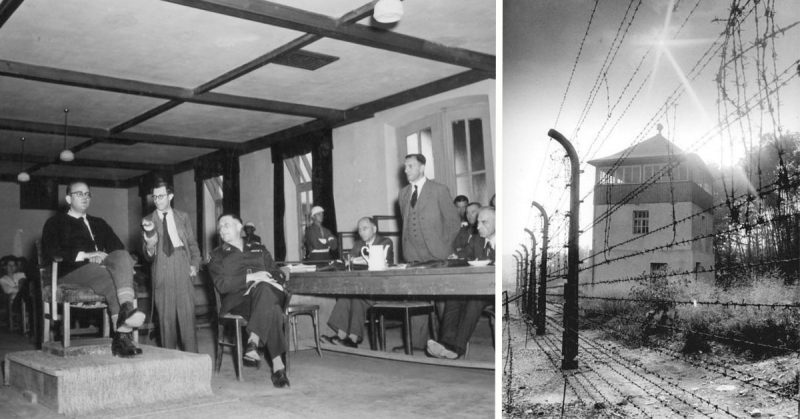When thinking of World War II, there are some undeniable images and individuals that we cannot help but think of: Adolf Hitler and his terrifying Nazi party members; the concentration camps that dotted the landscapes of Europe, committing millions to death; and the leaders of the SS who helped Hitler carry out his horrific and deadly plans.
World War II and the Germany that existed during that era are inseparable, intimately tied to together under evil actions committed in the name of the Third Reich. Although all that occurred per Hitler’s command throughout the second World War is unshakeable in its horror, not all who served within the Nazi government were united in the cause. In fact, one lone man worked tirelessly to expose the cruelty and criminal behavior taking place in his home nation: Georg Konrad Morgen.
While so many members of the Nazi Party either closely aligned with Adolf Hitler’s beliefs and regime, George Konrad Morgen stood out amongst them. A German citizen his entire life, Morgen spent his adult years fighting against Hitler and his murderous plans from within the regime itself – where so many turned a blind eye or acted upon orders handed down throughout the SS ranks, Morgen took an unpopular stance.
As a well-respected judge and legal official within Hitler’s regime, he was trusted to enact justice wherever crimes were discovered. Yet none, including Hitler and his closest friends, ever expected that one of their own would fight so valiantly to bring an end to their most vicious of plans: the extermination of an entire people.
Born in Germany in June of 1909, Morgen embarked on the path to a career in law when he earned his degree at the University of Frankfurt and went on to achieve his legal credentials at the Hague Academy of International Law.
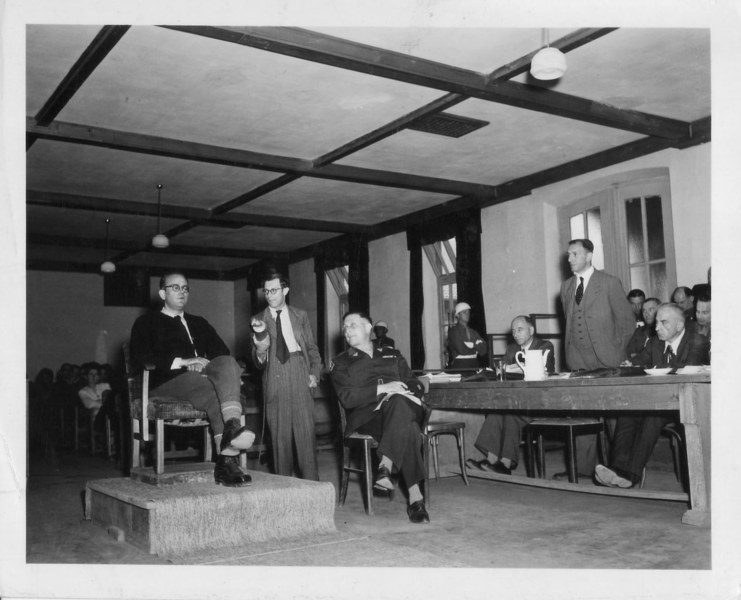
Unlike his unassuming and unknown parents before him, Morgen quickly earned a reputation as a judge when he aligned himself with Hitler during a trial – in the trial of a teacher charged with using excessive corporal punishment upon students, Morgen acquitted the teacher when pressured by the Hitler Youth organization. Soon after this trial, the judge entered military service when drafted into the Waffen-SS.
Upon completing basic training as a member of the SS, Morgen was demobilized and placed in new service: he became a judge with the SS Judiciary, assigned to oversee the SS court in Cracow in 1940. While residing as a judge in this capacity, Morgen began his career-long attempt to expose the evils and wrongdoings of SS officers.
He began by investigating a number of high-ranking officers whom he believed were responsible for corruption within the government, including Heinrich Himmler’s friend Hermann Fegelein, the man who would eventually marry Eva Braun’s sister.
During this time, Morgen also discovered and attempted to expose one of Fegelein’s allies, Jaroslawa Mirowska, as a Polish spy. Though his discoveries were kept hidden and denied by Himmler, Morgen was ultimately proved correct when Mirowska was arrested for acting as a double agent, working as the head of an underground Polish spy operation.
Unfortunately for Morgen, his work exposing SS officers and others like Mirowska did not go unnoticed. Although Morgen was performing excellently in his duty to expose corruption and to rule against those who were committing crimes within Hitler’s regime, his actions and judgments were not viewed as positive or favorable by his fellow SS members.
In reaction to Morgen’s discoveries regarding Fegelein and Mirowska, Himmler not only smoothed over the situation by claiming the duo acted in the best interests (and approval) of the Reich, but also chose to punish Morgen by sending him to fight on the front lines. Thus, Morgen began a brief career as a soldier in Hitler’s army, defending the eastern front against the advancing Soviet soldiers.
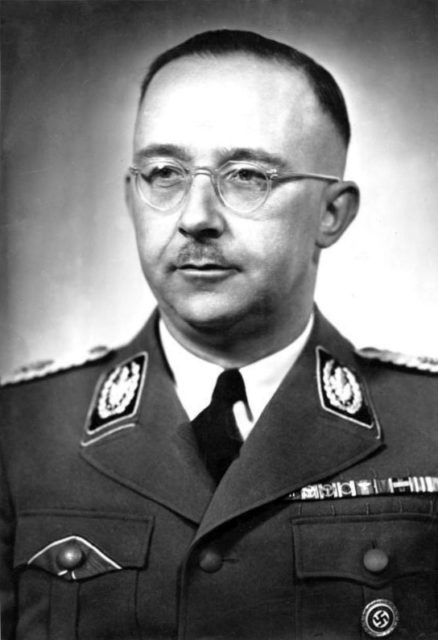
Soon after being banished to fight the Soviet Union as a mere member of the Nazi military, Morgen was called back into service as an SS judge by Himmler himself, the man who ended his initial position.
In 1943, Himmler summoned Morgen to investigate the German concentration camps – the SS official was worried that corruption within the death camps had become too great to control. Immediately, Morgen returned to his position and began investigating the potential wrongdoings of SS and Nazi officials.
He first accused Karl-Otto Koch, who oversaw the vicious Majdanek camp, and Waldemar Hoven, doctor of Buchenwald. Although Morgen could not accuse the men of murder or unjust killings, as Hitler’s regime allowed the dictator to make mass murders like those in concentration camps legal, Morgen was able to charge these men with theft, military insubordination, and murder of individuals. He also tried to levy charges against the famed Adolf Eichmann but was unable to secure an appropriate warrant.
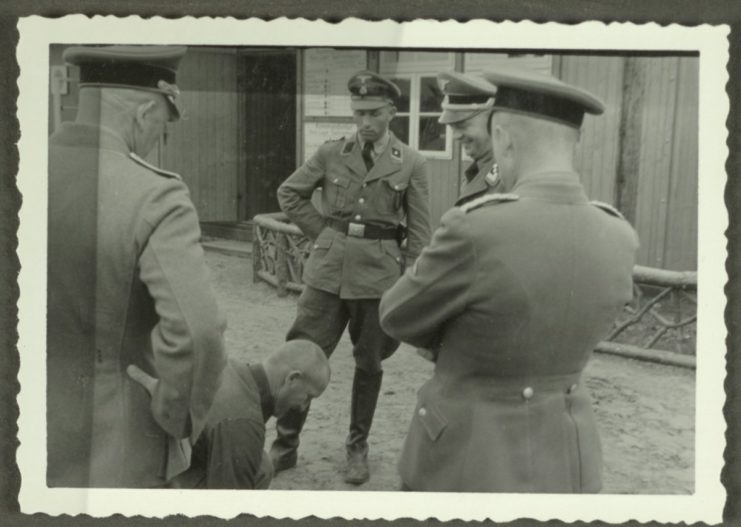
Among those Morgen investigated were the commandant of Buchenwald and Majdanek, Karl-Otto Koch, Koch’s wife Ilse Koch, and the Buchenwald camp doctor Waldemar Hoven. Charges included theft, military insubordination, and murder. Koch was tried, convicted, and executed shortly before the end of the war.
In post-war testimony, Morgen claimed the stories of Frau Koch’s fetish with lampshades made of human skin were merely a legend: he had personally searched Koch’s home near Buchenwald and found nothing of the kind. He later told the American journalist John Toland that he persisted in denying the story while being threatened with beatings and while actually being beaten twice by his Allied interrogators after the war.
During 1943, and the years that followed up until the end of the war, Morgen worked tirelessly to expose all that was occurring at Hitler’s many concentration camps. He traveled from site to site, witnessing the horrors such as mass executions and starvation at each.
Yet Morgen received his greatest surprise at Auschwitz – it was the first time he realized just how massive Hitler’s plan to exterminate an entire people were, and the first time Morgen had ever seen gas chambers.
Upon receiving a package of gold in need of inspection, Morgen became suspicious – the gold appeared to be dental gold, the source of fillings within teeth. During this time in Germany’s history, only a few individuals within thousands were able to afford the luxury of gold fillings.
Morgen realized that, in order to collect that much dental gold, hundreds of thousands of individuals must have been killed, and he immediately decided that Auschwitz needed to be investigated. Morgen took an investigative team to Auschwitz, where he was given a warm welcome and thorough tour of the deadliest areas within the camp.
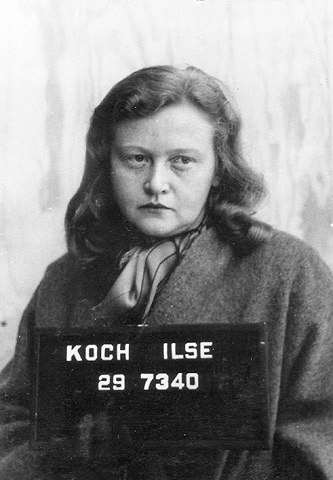
Again, Morgen found himself constrained – unable to accurately condemn what was taking place at one of the Reich’s deadliest concentration camps, he was left able to prosecute only the crime of murder against certain individuals. Because Hitler ordered the mass murder of the Jewish people, he, unfortunately, was unable to prosecute and close the camp’s proceedings as a whole.
Years after his initial visit to Auschwitz, Morgen detailed all that he saw and experienced before the juries and judges of the Nuremberg Trials, offering crucial evidence against both the Third Reich and his fellow SS officers.
In 1964, as the Auschwitz trials began Frankfurt, Morgen testified against his fellow Nazi Party and SS members who stood accused of war crimes. He gave detailed witness statements detailing the crimes and horrors he experienced during his visits to each concentration camp, all of which helped to bring justice to those who committed the gravest crimes throughout the war.
Although he was considered a dangerous and potentially untrustworthy man within Hitler’s regime, Georg Konrad Morgen earned himself a place within history as the very first individual to prosecute commandants of the Nazi concentration camps. He was the man bold enough to name his fellow SS men as criminals, to call attention to their crimes against humanity before any other among their ranks.
Although he was unable to legally judge them, Morgen did as he was able, investigating and exposing the mass murders occurring throughout Hitler’s territories, under his “legal” jurisdiction. Horrified by what he witnessed at Auschwitz and other concentration camps, Georg Konrad Morgen forged ahead to prosecute as many as possible, even when considered wrong for doing so.
For this, and for bringing so many members of the Nazi Party to justice in the Nuremberg Trials after the war, he is remembered as the member of the SS who truly fought to end the horrific actions of his leader.
